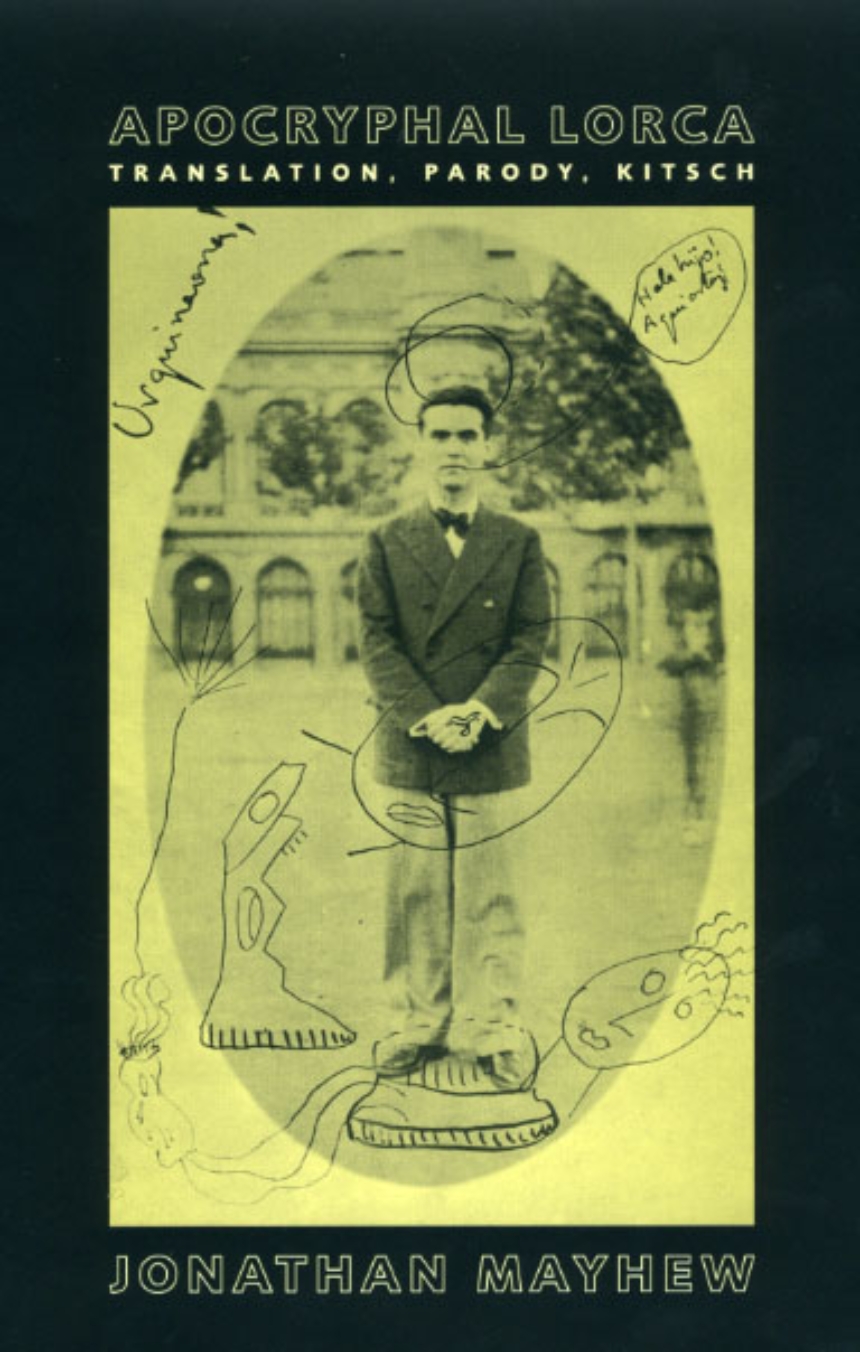Apocryphal Lorca
Translation, Parody, Kitsch
Federico García Lorca (1898–1936) had enormous impact on the generation of American poets who came of age during the cold war, from Robert Duncan and Allen Ginsberg to Robert Creeley and Jerome Rothenberg. In large numbers, these poets have not only translated his works, but written imitations, parodies, and pastiches—along with essays and critical reviews. Jonathan Mayhew’s Apocryphal Lorca is an exploration of the afterlife of this legendary Spanish writer in the poetic culture of the United States.
The book examines how Lorca in English translation has become a specifically American poet, adapted to American cultural and ideological desiderata—one that bears little resemblance to the original corpus, or even to Lorca’s Spanish legacy. As Mayhew assesses Lorca’s considerable influence on the American literary scene of the latter half of the twentieth century, he uncovers fundamental truths about contemporary poetry, the uses and abuses of translation, and Lorca himself.
240 pages | 5 1/2 x 8 1/2 | © 2009
Literature and Literary Criticism: American and Canadian Literature, Romance Languages
Reviews
Table of Contents
Preface
Chapter 1: Federico García Lorca (Himself)
Chapter 2: The American Agenda
Chapter 3: Poet-Translators:
Langston Hughes to Paul Blackburn
Chapter 4: The Deep Image
Chapter 5: Apocryphal Lorca:
Robert Creeley and Jack Spicer
Chapter 6: Frank O’Hara’s “Lorcaescas”
Chapter 7: Kenneth Koch: Parody and Pedagogy
Chapter 8: Jerome Rothenberg: The Lorca Variations
Conclusion: An American Lorca?
Notes
Bibliography
Index
